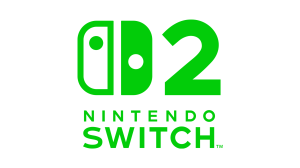Copyright, the exclusive right given to the creator of a creative work to reproduce said work, can be a tricky thing and when it comes to the copyright situation on many of the iconic film franchises of the 1980s it’s getting a bit trickier. Many writers are starting to utilize an existing amendment in the law to take back their rights from studios when the specific timing permits. It’s a move that shakes up who can make sequels or reboots of films and in the case of the Pet Sematary reboot it may have been a termination notice from Stephen King that prompted that movie to be made.
Videos by ComicBook.com
A new report from The Hollywood Reporter digs deep into the wave of copyright terminations starting to hit Hollywood with specific impact for films from the 1980s. Why the 1980s? The amendment to the copyright law indicates that writers can get their rights back 35 years after publication. That amendment was put in place in the late 1970s which means that, in broad terms, we’re just now starting to hit that 35-year mark for some major 80s favorites. It’s a time frame of specific interest for Pet Sematary. King’s novel was originally published in 1983 which means that he became eligible to terminate rights to the novel in 2018. Now, sending the termination notice isn’t a direct thing. It’s a process. Which means that when faced with the notice from King, the clock started ticking for Paramount to release another Pet Sematary film — something the report suggests is what happened. There’s a two-year time period from the time the author gives notice to when the studios lose their rights.
“Since the author has to give at least two years notice of the termination, that gives the studios two years notice that it’s ‘use it or lose it,’” entertainment attorney Larry Zerner said. “Even if Paramount was on the fence about making a remake, once the termination went into effect, it would be out of their hands or they would have to pay a much larger fee.”
That two-year period means that we could be seeing quite a few remakes, sequels, and reboots in the next few years from certain beloved properties. It also could have the impact of properties that were purchased but never actually made it to screen may actually finally have a chance once rights go back to their creators. There’s also the possibility that some creators will also negotiate new deals, something especially useful considering how much media has changed in the past 35 years.
It’s important to note though that the question of copyright reverting back to the creators does have limitations and the biggest one here is that it’s only the rights within the United States that creators can get back. International and foreign rights would be retained by the current rights holders.
Like we said, copyright can be a tricky thing.








